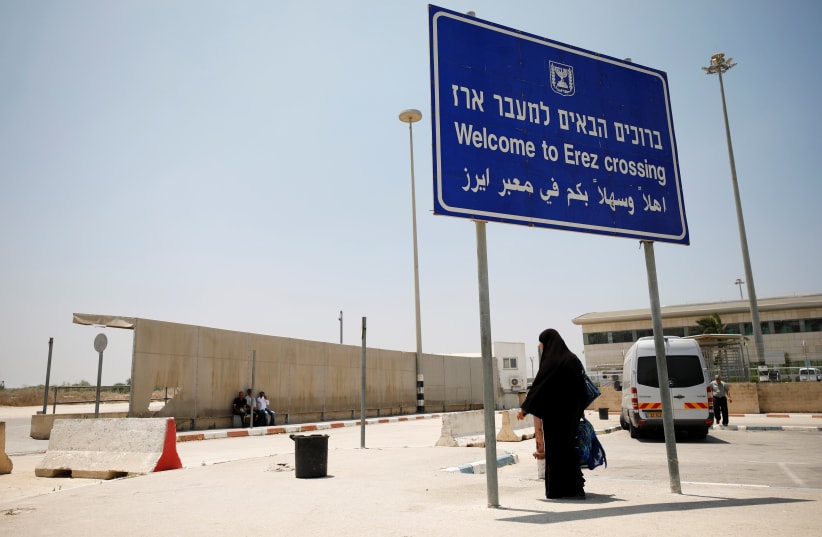Economic incentives provided to the Gaza Strip over the past year were likely a major factor in keeping Hamas out of Operation Breaking Dawn, a senior defense official said on Sunday.
Compared with last year, exports from Gaza to the West Bank are expected to grow by over 27%, while exports from the coastal enclave to Israel are set to grow by over 93%, according to data released on Sunday by the Coordinator of Government Activities in the Territories (COGAT).
Meanwhile, traffic passing through the Erez Crossing between the Strip and Israel is set to grow by 311% to 672,000 crossings in 2022 compared with 163,500 in 2021.
The unemployment rate in Gaza has fallen by 5.5% in the last year, to 44.7%, with the number of employed Gazans rising by 14% to 278,000. The average daily wages in Gaza sat at NIS 61.7, an NIS 1.2 gain from the last quarter, reaching about NIS 1,200-NIS 1,300 per month.
Those Gazans who received work permits to enter Israel have an average salary of about NIS 7,000 per month. While over 200,000 Palestinian workers have been registered for work permits, the defense establishment intends to approve up to 20,000 workers in stages, as a figure beyond that could negatively impact efforts to reach a prisoner swap agreement with Hamas.
“In the past year, the IDF, under the guidance of the defense minister, has been promoting an integrated policy toward the Gaza Strip,” said COGAT Maj.-Gen. Ghassan Alian. “The policy consists of a military effort to thwart military escalation and fatal damage to any attempt to harm the security of the State of Israel, along with a proactive and public-oriented civilian policy. Last week, during Operation Breaking Dawn, strategic targets were attacked, and the senior command of the [Palestinian] Islamic Jihad organization was taken out – after it tested Israel’s patience.”
Alian added that after the operation, the civil policies implemented for Gaza were renewed, although limitations were placed on the issue of reconstruction until progress is made on prisoner swap efforts.
'Civil policies are subject to keeping the peace'
“The residents of Gaza must know that we have no interest in being dragged into a war against them, and the Israeli defense establishment will continue to allow humanitarian civil policies toward the Gaza public, but this is subject to the preservation of security stability,” said Alian. “If Hamas and the other terrorist organizations in the Gaza Strip try to break the peace, Israeli policy will change accordingly. I suggest to the residents of Gaza to look at the West Bank, and the steps that Israel is promoting there, and to understand what is at stake and what damage Hamas is causing them. Hamas is an enemy of the State of Israel, and, unfortunately, also of the residents of Gaza.”
A senior defense official assessed that while the risk of losing the economic policies implemented over the past year likely was part of Hamas’s decision to stay out of Operation Breaking Dawn, these policies have also created challenges for Israel’s defense establishment, including tracking dual-use materials and construction materials entering Gaza, according to Walla. The defense establishment has worked to increase enforcement at both the Israeli and Egyptian ends of the Gaza crossings in order to lower these risks.
